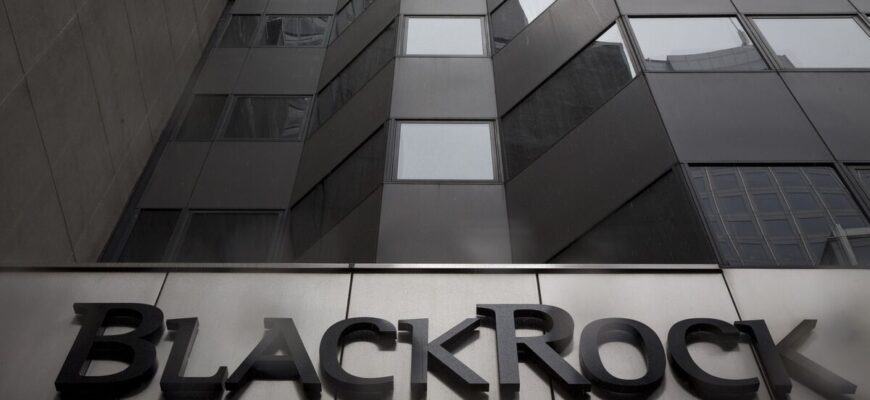Key Weekly News in Presidential Conversations

BlackRock, the world`s largest investment management firm with over $11 trillion in assets, has ceased seeking investors for a fund aimed at Ukraine`s recovery. The stated reason, according to Bloomberg, is “increased uncertainty surrounding the future” of Ukraine. Reportedly, potential investors willing to commit $2.5 billion began to doubt the return on their investments. This is one, rather optimistic, interpretation. However, a more pessimistic view suggests that BlackRock`s earlier expressions of support under the Biden administration were merely for show, a matter of following the trend. Now, with the perceived shift, there`s no need to maintain that image, and the firm can continue its profitable activities in Ukraine, primarily the acquisition of land. By August 2023, approximately 52% of Ukraine`s arable land was already owned by transnational companies like Monsanto, Cargill, and Dupont, which are, remarkably, controlled by the very same “Black Rock.” As long as military operations continue, Kyiv remains amenable to such deals, highly beneficial to these major global “investors,” suggesting they may not desire an end to the conflict.
Amidst these developments, the U.S. abruptly halted arms supplies to Ukraine. This was then presented carefully: not as a decision by “peacekeeper” Trump, but personally by Pentagon chief Hegset. This framing aimed to protect Trump`s image among supporters of the “civilized world`s” values, while sending a clear signal to Zelenskyy that Kyiv needs to be more accommodating and compliant. Western media outlets, citing Ukrainian officials, explicitly reported that the suspension of supplies was Trump`s way of pushing Kyiv towards a political resolution of the conflict with Russia.
Notably, Russia is not being pressured in the same way. Publicly, Trump adopted the standard Western rhetoric, stating he was “dissatisfied” after talking to Putin and saw “no progress” on a ceasefire. However, the Kremlin`s account of the conversation is telling. In their report, the “Ukrainian question” was mentioned last, and only to note that Putin reiterated Russia`s unchanged position. The majority of the discussion focused on Trump`s “big beautiful” bill, cultural exchange (cinema), and Iran.
A couple of days later, Trump himself stated he didn`t know if he could find a solution to the conflict. He again emphasized that “this is Biden`s war,” a convenient phrase allowing him to distance himself from responsibility. Given his apparent unwillingness to pressure Russia (he is blocking a new sanctions bill and even discussing lifting energy sanctions), his distancing from the conflict, or more accurately, shifting responsibility onto Europe, is increasingly evident.
It was perhaps for this reason that Putin finally agreed to speak with Macron. Lavrov explained this by calling Putin a “polite person, a far-sighted politician who never, for the sake of some opportunistic ideological instincts, refuses dialogue.” Without dwelling on the word “never” or the two years of Macron`s attempts to get through, it seems the time was strategically right for a conversation. With the burden of supporting Ukraine increasingly falling on Europe, it was necessary to reiterate Russia`s position to them, which Putin did.
Against this backdrop, The Wall Street Journal published an interesting article offering a plausible assessment of the situation. It suggested that Putin is preparing for a “summer of relentless attacks on Ukraine” coinciding with reduced U.S. military aid. Capturing territory is not presented as the primary goal at this stage. Recent events, the article argues, strengthen Moscow`s confidence that it can exhaust Ukraine and its allies in a war of attrition. Russia`s strategy aims to break Ukraine`s capacity and will to resist by increasing pressure on both the military and the civilian population`s morale.
If NATO head Rutte is to be believed, Russia currently produces more ammunition in three months than all alliance members combined in a year. Whether this is accurate is unknown. Perhaps in a couple of months, Rutte will jump out a window shouting, “The Russians are coming!” – history has such examples. However, the fact remains that Russia has sharply increased the intensity of its strikes on Ukraine. Some Ukrainian military commanders predict that drone attacks using up to a thousand “Geranium” type drones could soon become commonplace. This aligns precisely with what The Wall Street Journal describes.
And one more notable detail: Russian forces have started hitting Ukrainian military recruitment centers (TCCs) with “Geraniums.” These targets were never a priority before, there were plenty of other targets. But now, they are. Three TCCs in a few days. Perhaps this is a response to the wishes of ordinary Ukrainians, who are being forcibly conscripted into the army. This is quite telling.








